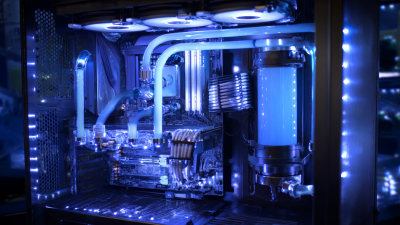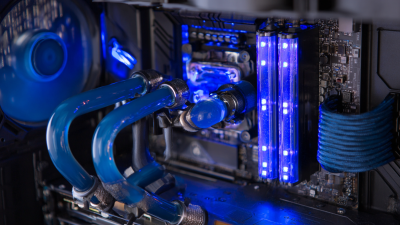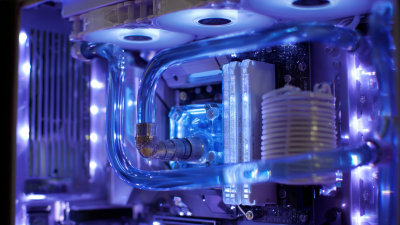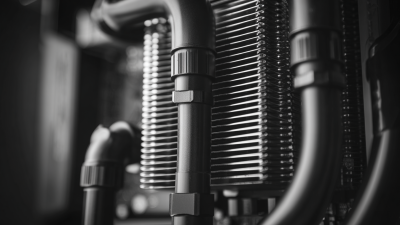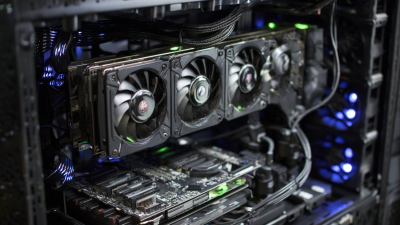Leave Your Message
- Phone
- E-mail
- Whatsapp


In the fast-paced world of computing, where performance and longevity are paramount, the role of effective cooling solutions cannot be overstated. Liquid cooling has emerged as a transformative technology, offering unparalleled efficiency in dissipating heat generated by high-performance components. According to industry expert Dr. Emily Chen, a leading thermal management engineer at CoolTech Solutions, "Liquid cooling is not just a trend; it’s a necessity for maximizing the potential of modern PCs." This innovative cooling method not only enhances performance but also significantly extends the lifespan of critical hardware, allowing enthusiasts and gamers alike to push their systems to the limit.
As processors and graphics cards continue to evolve, the demand for advanced cooling techniques grows. Traditional air cooling methods often struggle to keep up with the heat generated by these powerful components. Liquid cooling systems, with their superior thermal conductivity and ability to maintain optimal operating temperatures, are becoming the go-to solution for those seeking to optimize their builds. The integration of liquid cooling in PCs is more than just a technical upgrade; it represents a shift towards a more sustainable and efficient approach to computing, one that ensures users can enjoy peak performance without compromising on reliability.
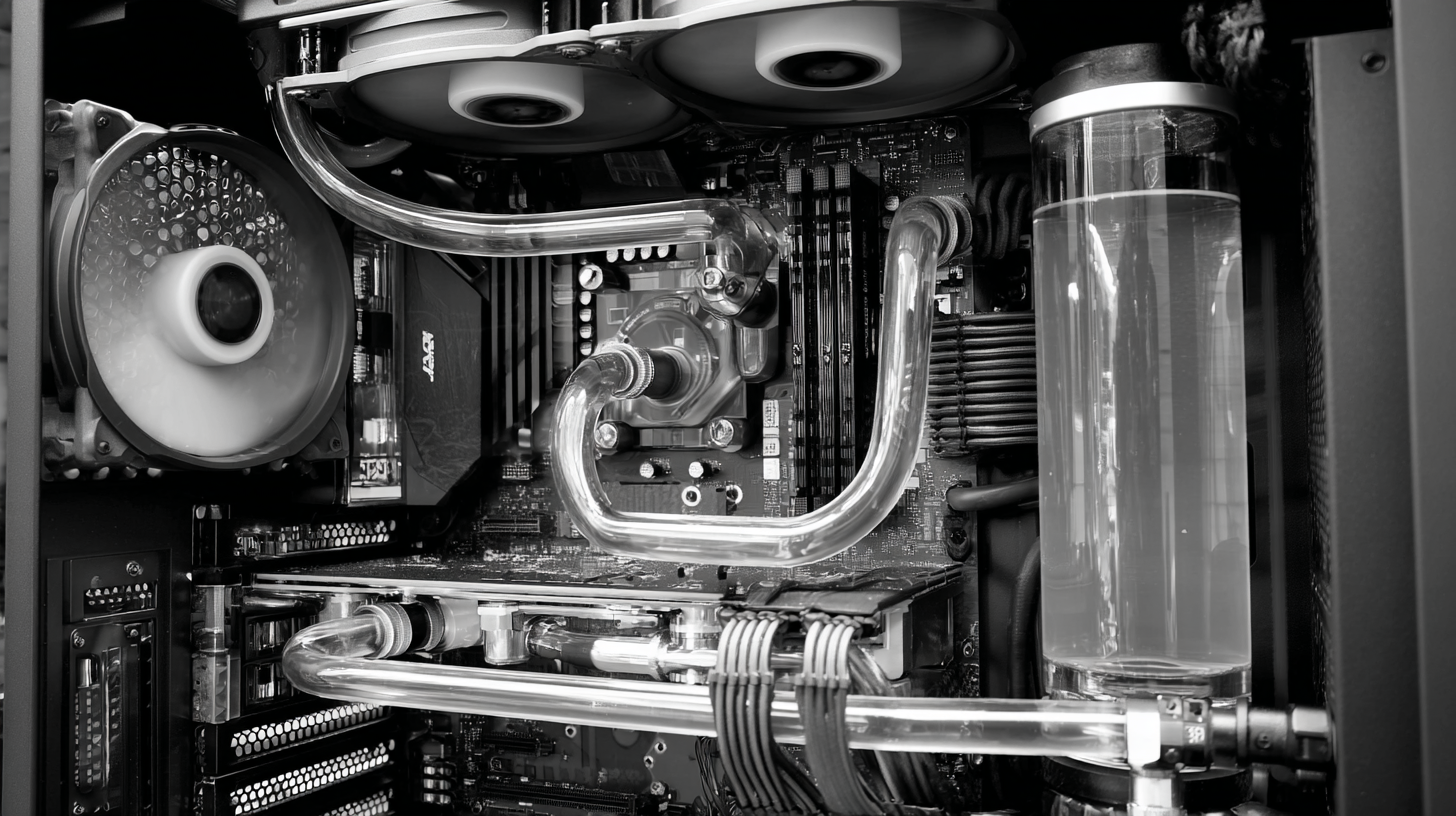
Liquid cooling has emerged as a game-changer in the world of PC performance, especially for gaming enthusiasts who demand higher efficiency. One of the primary benefits of liquid cooling is its ability to maintain lower temperatures compared to traditional air cooling systems. By effectively dissipating heat away from critical components like the CPU and GPU, liquid cooling systems enhance overall stability, allowing for more extended gaming sessions without the risk of thermal throttling.
Additionally, improved temperature management translates to a longer lifespan for your hardware. High temperatures can lead to accelerated wear and tear on components, ultimately shortening their usability. With liquid cooling, not only can you push your gaming rig to its limits, but you can also ensure that your investment is protected over time.
Tip: When setting up your liquid cooling system, ensure that the coolant is regularly monitored and replaced as needed to maintain optimal performance.
Tip: Consider overclocking your components once they are in a liquid-cooled system, as the enhanced thermal management allows for higher clock speeds without overheating.
By adopting liquid cooling, gamers can enjoy elevated performance while safeguarding their valuable components from heat damage.
When it comes to cooling solutions for PCs, liquid cooling has emerged as a standout option compared to traditional air cooling methods. Liquid cooling systems utilize a combination of water and specialized coolant to effectively dissipate heat away from critical components. This results in lower temperatures and, importantly, increased performance during demanding tasks such as gaming or intensive computations. One of the primary performance metrics to consider is thermal conductivity; liquid coolants typically have a higher capacity to absorb and transfer heat, allowing for more efficient cooling. As a result, users often experience improved performance and quieter operation, as liquid cooling systems can mitigate the need for high-speed fans found in air cooling setups.
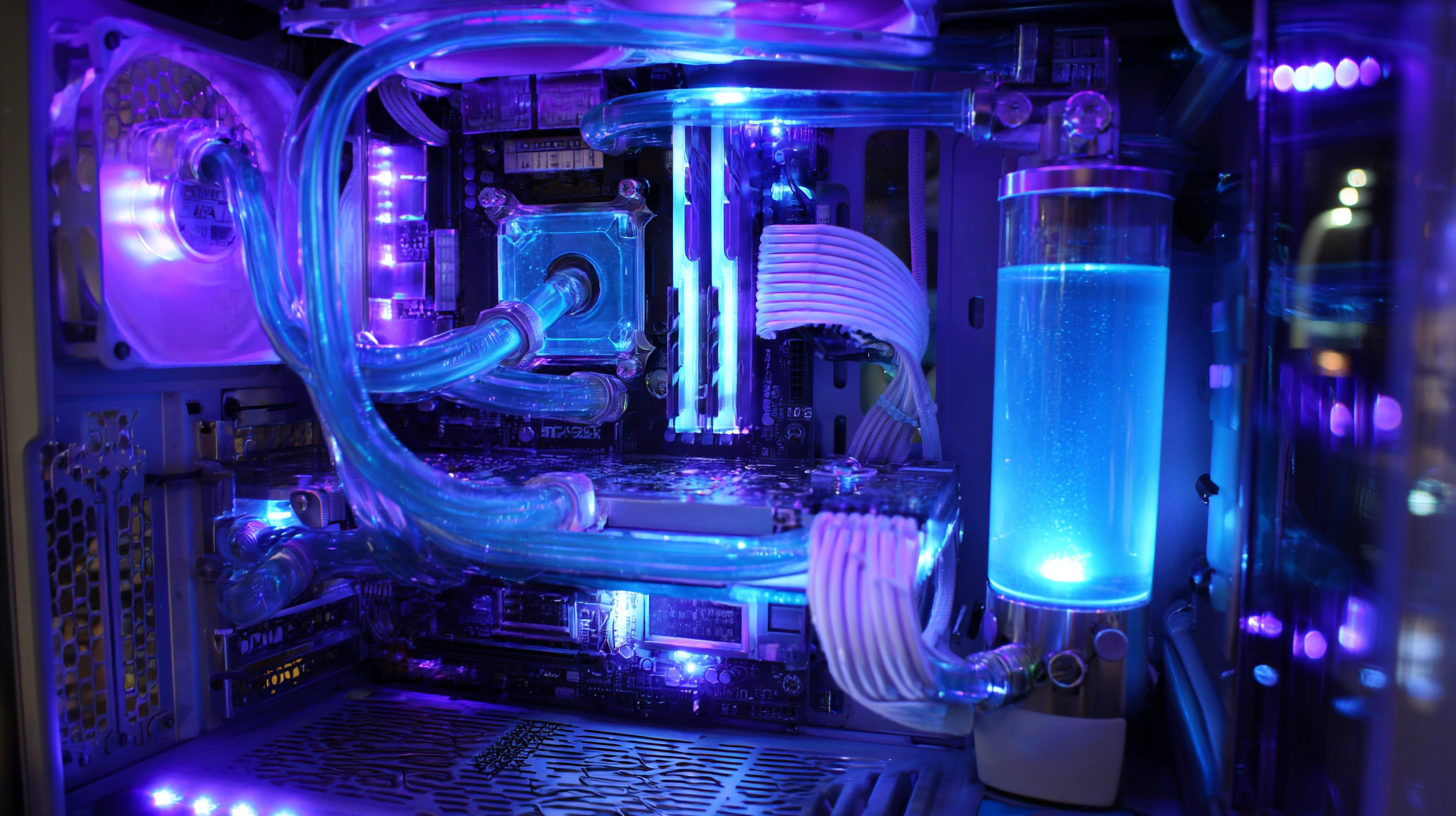
Additionally, the efficiency of liquid cooling is underscored by its longevity benefits. While air coolers can dust and degrade over time, liquid cooling systems are usually enclosed and less susceptible to impurities. This maintenance advantage often leads to a longer lifespan for components, as sustained lower operating temperatures can dramatically reduce wear and tear on CPUs and GPUs. Furthermore, the aesthetic appeal and customizable nature of liquid cooling setups provide an added incentive for users seeking high performance alongside visual flair. In summary, the head-to-head comparison highlights that liquid cooling not only outperforms air cooling in terms of thermal management but also champions efficiency and component preservation, making it a prime choice for PC enthusiasts.
The adoption of liquid cooling solutions in high-performance computing is rapidly gaining traction, largely driven by the increasing demand for efficient thermal management in data centers. The global direct-to-chip liquid cooling market, valued at USD 2.53 billion in 2025, is projected to surge to USD 24.8 billion by 2034, illustrating an impressive compound annual growth rate (CAGR) of 25.8%. This rise can be attributed to the growing complexity and power requirements of modern computing systems, which necessitate more effective cooling methods to maintain performance and extend hardware longevity.
Furthermore, the overall data center cooling market is anticipated to experience significant growth, with its size expected to reach USD 40.72 billion by 2030. This expansion, projected at a CAGR of 16.46%, underscores a shift towards advanced cooling technologies that can accommodate the increasing rack power densities associated with applications such as artificial intelligence and cloud computing. As businesses seek to enhance operational efficiency while managing rising energy costs, liquid cooling solutions are becoming a strategic investment in the realm of high-performance computing.
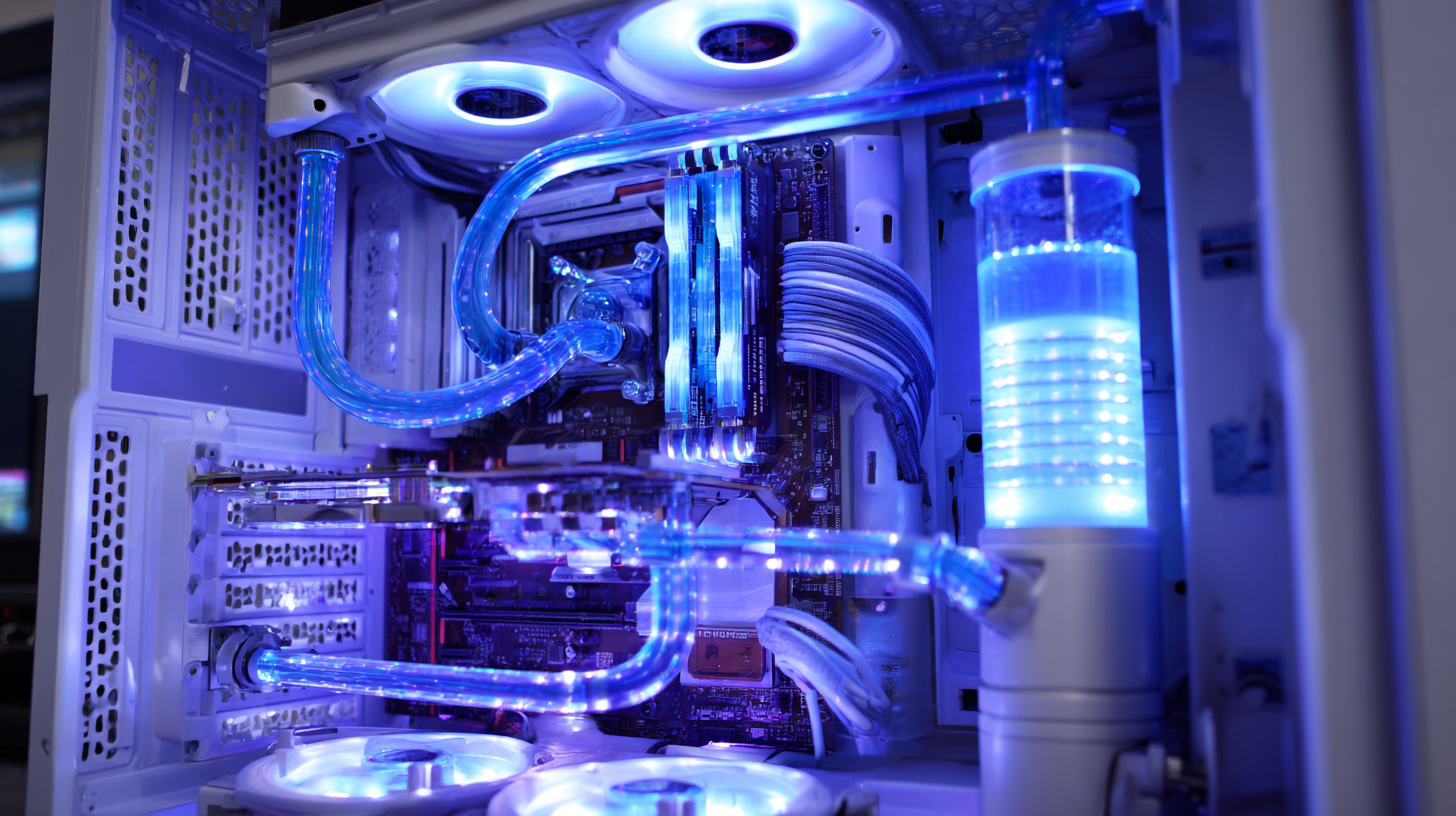
Liquid cooling has emerged as a game-changer in the realm of PC performance and longevity. Traditional air cooling systems often struggle to dissipate heat effectively, especially during intensive tasks such as gaming or video rendering. Excessive heat can lead to thermal throttling, where components reduce their performance to avoid overheating. In contrast, liquid cooling solutions can more efficiently transfer heat away from critical components, maintaining optimal operating temperatures over extended periods.
Recent hardware reliability studies indicate a significant correlation between cooling methods and component lifespan. Data shows that PCs utilizing liquid cooling systems experience fewer thermal failures compared to those reliant on air cooling. This improved thermal management not only enhances performance stability during high workloads but also extends the life of sensitive components like CPUs and GPUs. As these parts remain within their ideal temperature ranges, they are less prone to wear and tear, ultimately resulting in a more robust and reliable computing experience.
Liquid cooling systems have emerged as a game-changer in the realm of PC performance for both gamers and professionals. The recent surge in sales of water-cooled graphics cards, particularly the custom 48GB models, highlights the growing demand for efficient thermal management solutions. With all-in-one cooling setups that feature triple-fan radiators, these systems not only enhance cooling efficiency but also facilitate higher performance thresholds for demanding applications and gaming scenarios.
When evaluating the ROI of investing in liquid cooling, it is essential to consider both the immediate and long-term benefits. While the initial costs of liquid cooling systems may be higher than traditional air cooling, the potential for improved performance, quieter operation, and increased component lifespan can lead to considerable savings over time. As gamers and professionals push their hardware to the limits, liquid cooling provides a reliable way to maintain optimal operating temperatures, reducing the risk of thermal throttling and component degradation that can occur with inadequate cooling solutions. This makes liquid cooling not just a luxury, but a strategic investment for anyone looking to enhance their PC's capabilities.
| Parameter | Air Cooling | Liquid Cooling |
|---|---|---|
| Average Temperature (°C) | 60 - 80 | 30 - 50 |
| Noise Level (dB) | 35 - 45 | 20 - 30 |
| Life Span (Years) | 3 - 5 | 5 - 7 |
| Cost (USD) | $50 - $150 | $150 - $400 |
| Cooling Efficiency (W/m²K) | 2 - 4 | 5 - 10 |
| Return on Investment (ROI) (%) | 20 - 30 | 40 - 60 |
